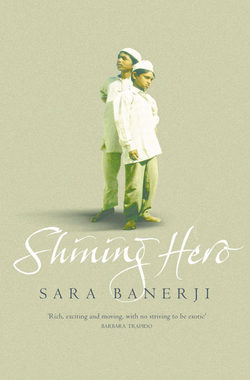Читать книгу Shining Hero - Sara Banerji - Страница 4
Epigraph
ОглавлениеTHE MAHABHARATA IS AN EPIC POEM eight times longer than the Iliad, written in the third or fourth century B.C. It tells the story of a great war between two sets of cousins, the five Pandavas, the third of whom was Arjuna, and the hundred Kauravas, the eldest of whom was Dhuriodhana.
They fought for the kingdom whose capital city was Hastina-pura, which means city of the elephant, and to which the brave, heroic Pandavas were entitled. They had however been tricked out of their inheritance by the treacherous and devious Kauravas.
This poem is more than a story or a history. It describes the moral and ethical standards of the day and makes value judgements which are valid even in modern times. Anger, fear, hatred, jealousy, greed, lust, envy, pride and arrogance are all experienced by the protagonists of the Mahabharata. Heroes are capable of acting badly. One of Arjuna’s brothers, the heroic Yudhistra, loses everything he owns including his wife and children as well as his kingdom, in a game of dice. Arjuna himself suffers weakness at the start of the battle. His chariot is driven by the god Krishna who instructs and advises him when Arjuna becomes filled with doubt because he realises he will have to kill uncles, cousins and even his old teacher.
In the Bhagavad Gita, meaning ‘The Song Of God’, Krishna, during the battle, reminds Arjuna that because he is a kshatriya, or of the warrior caste, he has a greater duty to fight than he has towards his relatives.
In the course of the song Krishna gives Arjuna precise instructions on how to silence his mind and reach the Absolute so that to this day those learning to meditate can find the instructions for transcending thought in the Bhagavad Gita.
